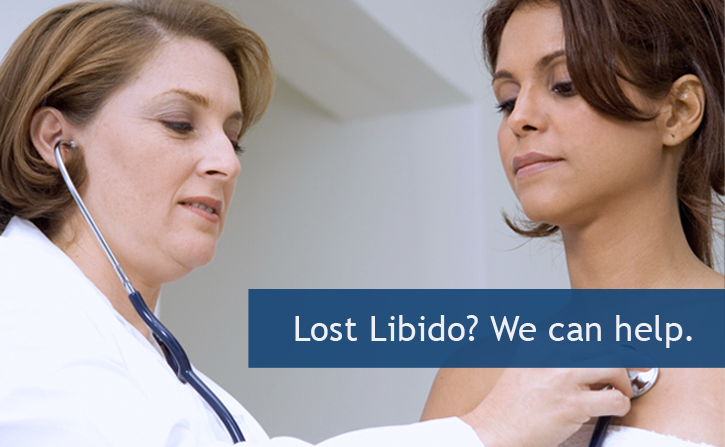
Lost Libido: When You’re Just Not in the Mood
 If you’re simply not interested in having sex, you’re not alone. Having low – or no – desire for sex is one of the most common sexual dysfunctions affecting women of all ages. In fact, as many as 43 percent of women experience sexual dysfunction at some point in their lives.
If you’re simply not interested in having sex, you’re not alone. Having low – or no – desire for sex is one of the most common sexual dysfunctions affecting women of all ages. In fact, as many as 43 percent of women experience sexual dysfunction at some point in their lives.
When it’s an ongoing problem that causes distress to you and your partner, there’s even a medical term for it: hypoactive sexual desire disorder.
The good news is that low sexual desire is treatable. With patience, open communication with your partner, and a compassionate doctor and/or therapist, you can reclaim this very pleasurable aspect of your life.
So What Causes Low Sexual Desire?
A woman’s desire for sex is complicated, involving her hormones, emotional connection to her partner, general health and well-being, and mood. Factors that can affect sex drive include:
- Menopause and aging – A woman’s estrogen levels drop at menopause and during perimenopause (the years leading up to menopause). As a result, her interest in sex may diminish, and she may experience vaginal dryness which makes sex painful – and something she’d rather avoid.
- Pregnancy and childbirth – Being pregnant also causes changes in a woman’s hormone levels, which can affect her libido. After birth, sleep deprivation, adjusting to motherhood and simply the physical trauma of childbirth can dampen enthusiasm for sexual activity.
- Stress – Managing a household, juggling work and family commitments, aging parents, relationship issues – all can create stress that contributes to a lower sex drive
- Thyroid problems – An underactive thyroid can contribute to low libido
- Birth control pills – Some women experience reduced libido due to lowered free testosterone levels which can result from taking the pill
- Relationship issues – Sexual response often has a lot to do with how you feel about and communicate with your partner
- Depression – This can have a big impact on sex drive and, ironically, some of the most frequently prescribed antidepressants can further dampen sex drive and sexual enjoyment
- Past trauma – When a woman has had negative sexual experiences in the past (such as rape or sexual abuse), it can understandably affect her desire for sexual intimacy
- Cultural or religious beliefs – If a woman is raised to believe that sex is “bad,” it’s hard for her to enjoy being intimate with a partner
Treatment for a Low Sex Drive is Available
While there’s no “magic pill” for restoring a woman’s libido, there are many steps you can take. Often, the solution is a combination approach that may include.
- Talk to your doctor and get evaluated for any physical causes of low libido
- If appropriate, consider taking hormones (talk with your doctor about their risks and benefits)
- Seek counseling with a therapist who specializes in sexual and relationship issues
- Work with your doctor to adjust or change a medication that has sexual side effects
- Be physically active (regular exercise can improve your body image, elevate your mood and help you feel more romantic)
- De-stress (make time for relaxation and downtime)
- Keep the lines of communication with your partner open
- Work through issues in your past that are affecting your attitude toward sex today
Don’t Give Up
Sure, you can live with a low sex drive – but why should you deprive yourself and your partner of the pleasure that sexual intimacy can offer?
Take the first step, and talk to your doctor. Here at Women’s Health, our board-certified obstetrician-gynecologists can provide a complete sexual dysfunction evaluation in an atmosphere of respect and understanding. Simply contact us.

